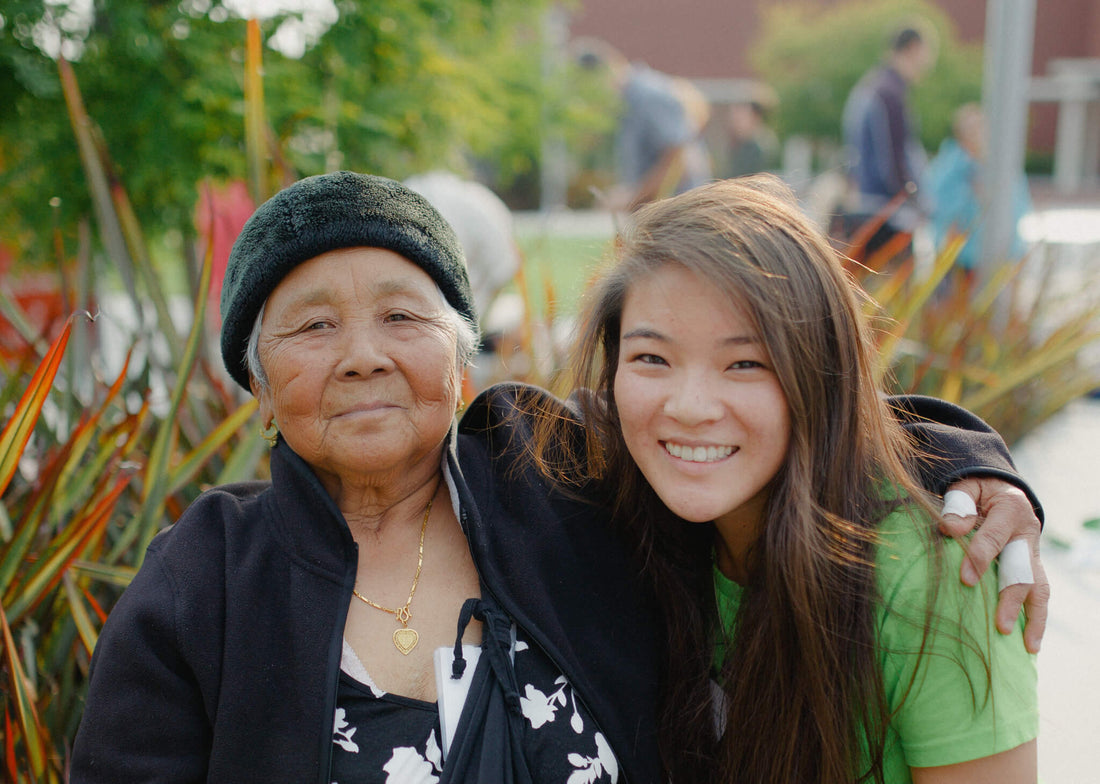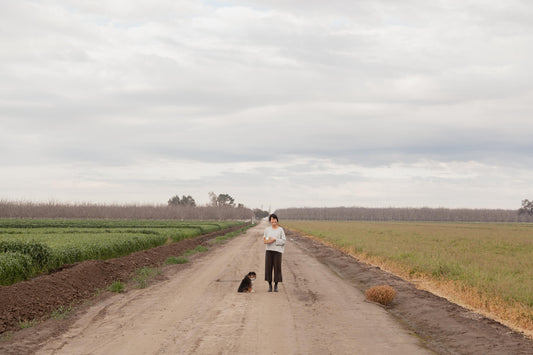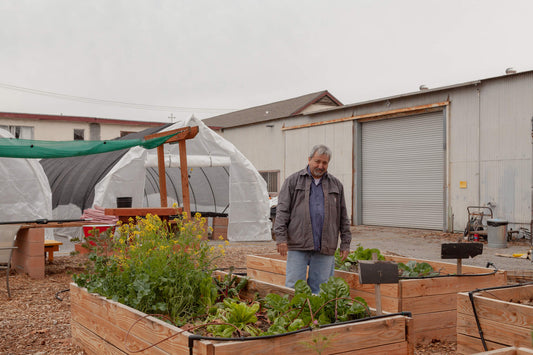Beyond organic cookies and food sustainability, there's been a wave of advocacy this past year regarding intersectional environmentalism: an inclusive form of environmentalism that advocates for protection of not only the planet, but also the people who live on it. Communities with the fewest material resources are usually the first and worst affected by environmental degradation and pollution, and their leadership is critical for advancing the transition away from an extractive economy based on profit and pollution and toward local, healthy, and life-sustaining economies that benefit everyone.
In light of Asian Pacific American Heritage Month, we're taking the time to get to know APEN, an organization based in the East Bay that advocates environmental, social, and economic justice for Asian immigrant and refugee communities. In an effort to educate ourselves about all different areas of sustainability, I had the honor of speaking with Vivian Huang, the Deputy Director of APEN, who's been there for the past 11 years and has a wide range of experience in campaign organizing and policy change. Read more about her background, experience, and ways to get involved in the interview below.

Image Credit: Eurydice Thomas
Could you give a brief history of how and why APEN was founded?
In 1991, the first National People of Color Environmental Leadership Summit brought together people from all over the country fighting environmental racism in their communities. It was at this gathering that The Principles of Environmental Justice was created, a foundational document to our work and the work of similar organizations throughout the country.
Several Asian Americans were at the summit, including Miya (our current Executive Director), who was a youth organizer at the time. APEN grew from a seed of an idea at this summit - to form an organization to build the leadership of Asian immigrant and refugee communities locally to fight for environmental justice.APEN started first by organizing in Richmond, California, with the refugee community from Laos. Over time, we started organizing in a second neighborhood - the Chinese community in Oakland. We've built deep relationships with both communities, which has allowed us to advocate needs in those particular areas. People often come to us with ideas or a vision for what their community needs, and we work together to organize people to create change.

What are some of the biggest challenges APEN faces when it comes to establishing environmental justice?
The opposition - there are reasons why environmental racism exists, and existing systems in place promote ways of living that are harmful to people. We want to take on the extractive economy, an economic model that puts profits at the expense of humanity, nature, and the environment, so that people can live full, dignified lives. So many of the systems we live in don't support that, and we're up against an economic system that is very extractive across all issues. While people may be affected by multiple injustices - lack of health care, education, employment, etc. - the root of it is the extractive economy.
Can you tell me about a moment or experience when you felt proud to work for APEN?
I had to work on a campaign several years back around the Chevron refinery - they wanted to expand their operations in Richmond, which would create adverse health impacts for the community. Our community had to go up against Chevron, a multi-national, multi-billion-dollar corporation that put millions of dollars and power behind their campaign to move forward. I felt the enormity of the struggle that we were in and the importance of the matter. It symbolized the need for us to shift and take on the power the corporation wields in our society, to stop their pollution of both the air and democracy. Our organizing has been winning campaigns in making our communities healthier, just places where people can thrive.

Do you have suggestions for an individual who wants to get involved with these issues in their local community?
There are a number of national alliances comprised of organizing groups across the country - consider checking Climate Justice Alliance, Grassroots Asians Rising, Southeast Asian Freedom Network, Grassroots Global Justice, Right to the City Alliance. Much work goes behind building relationships and trust, so tap into an existing organization if you can. There's always a role for everyone in this movement - it can be as simple as donating money, showing up to actions, and using your voice to support.
Where can we find APEN and get involved if we're based locally?
For those who want to volunteer long term, the best thing to do is to get in touch so we can match you to the right campaign. We're currently doing work around reimagining safety and affordable housing in Oakland Chinatown, air quality and decommissioning the refinery in Richmond, and co-sponsoring AB 1087, which supports climate resilience hubs, in Sacramento - there are many ways to support! You can stay connected on social media, sign up for our email newsletter, or donate through our website.









![Spade and Plow: Organic Growers With a Whole Lot of [Artichoke] Heart](http://cometochristines.com/cdn/shop/articles/Spade_and_Plow_Christine_s_Cookie_Co_1.jpg?v=1623459806&width=533)



